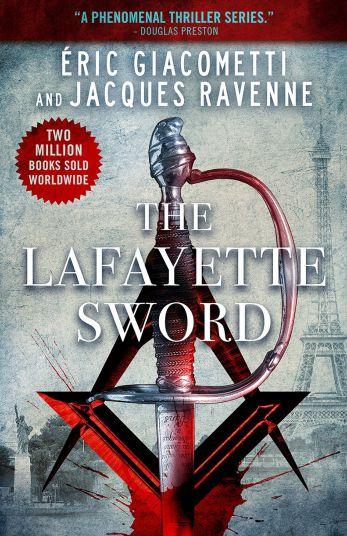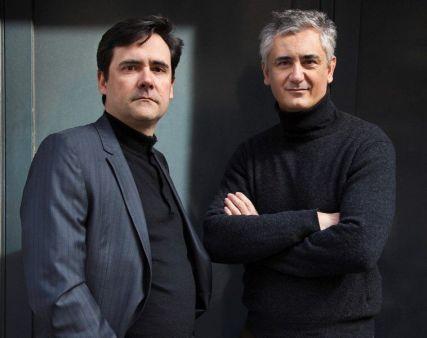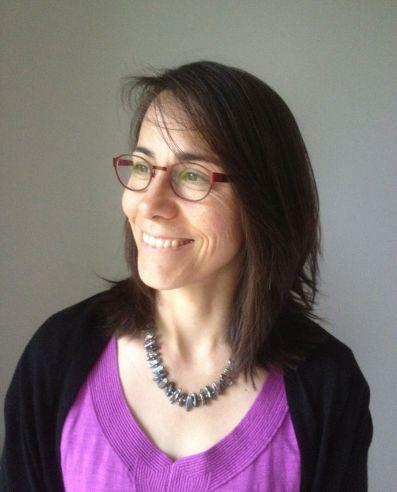Anne Trager, translator
The Lafayette Sword by Eric Giacometti and Jacques Ravenne
Can you actually make your own gold? I uncovered the truth recently while working on a fun thriller by Eric Giacometti and Jacques Ravenne called The Lafayette Sword. The plot has gold fever, Freemasonry, murders, and the quest for a stolen, priceless sword. It also has alchemy. It's fiction, but to write it, the authors did a lot of research, and to translate it, so did I.
What exactly is alchemy?Alchemy dates back four millennia, spans three continents (China, India and Europe), and includes a lot of symbolic mumbo-jumbo. But in short, it was part science, part magic.
Medieval European alchemy set out to make a substance called the philosopher's stone-it was not actually a stone, but similar to wax in consistency. It was supposed to transform base metals into gold. Perfect for the greedy and power hungry, you may think. In fact, alchemy was more than a quest for a money-machine. It was also a symbolic journey of self-realization and the precursor to chemistry.
Magnum OpusAt the time, people thought everything was made up of fire, air, water and earth. If a common metal like lead was made of these elements, then gold was too. Thus, in theory, one could be transformed into the other.
The alchemical world view also included the idea of progression or maturation. Gold was considered the most mature metal because it had a perfect balance of these four elements. In some traditions, it also symbolized the most advanced stage in a person's spiritual refinement. The transmutation of lead into gold was like the transmutation of the physical body into a higher energy-that is, becoming immortal.
The key was in the philosopher's stone, which not only transformed metals, but also had healing powers, and was an essential ingredient in the elixir of life.
So, the alchemical Great Work, or Magnum Opus, was the process of working with the prima materia to create the philosopher's stone. It ultimately led to gold, a perfect body and soul, and enlightenment-an enticing promise.
Pseudo-science?Not so fast. As an article in Scientific American states,
"Alchemists have often been dismissed as pseudoscientific charlatans but in many ways they paved the way for modern chemistry and medicine. The alchemists of the 16th and 17th centuries developed new experimental techniques, medicines and other chemical concoctions, such as pigments. And many of them 'were amazingly good experimentalists,' says Lawrence Principe, a chemist and science historian at Johns Hopkins University. 'Any modern professor of chemistry today would be more than happy to hire some of these guys as lab techs.' The alchemists counted among their number Irish-born scientist Robert Boyle, credited as one of the founders of modern chemistry; pioneering Swiss-born physician Paracelsus; and English physicist Isaac Newton."
Isaac Newton, who was a Freemason and practiced alchemy throughout his life, even played an important role in the gold market. In 1696, he was appointed to the Royal Mint. At the time coin counterfeiting was rampant. He managed to recall all the coins in circulation, manufacture and issue new secure coinage and introduce the gold standard. Go Isaac!
Perhaps the most famous alchemist of all times was Nicolas Flamel, who figures in The Lafayette Sword, as readers follow his quest for the philosopher's stone. The legend around him grew during the seventeenth century, when alchemy was all the rage, and continues to this day. He's quoted in Victor Hugo's Hunchback of Notre Dame, he figures in Harry Potter and the Philosopher's Stone, he's mentioned in The Da Vinci Code. (Now, that's an odd combination of titles to have in one sentence.)
Yes, you canToday alchemy is actually possible. We have the technology, and it's been done. Nobel laureate Glenn Seaborg tranmuted tiny quantities of bismuth into gold in 1980. What you need, again according to Scientific American is: "a particle accelerator, a vast supply of energy and an extremely low expectation of how much gold you will end up with." The current consensus is that it would cost way too much (a quadrillion dollars per ounce) to be worth it.
Find out more¥ For an in-depth examination of gold from antiquity to modern times, read Peter Bernstein's The Power of Gold: The History of an Obsession.
¥ The World Gold Council, www.gold.org, provides information about current prices, mining, supply and demand and research.
¥ For more about gold market manipulation, and the inspiration for the worldwide gold conspiracy in The Lafayette Sword: Gold Anti-trust Action Committee www.gata.org.
¥ On the science of turning lead into gold: http://www.scientificamerican.com/article/fact-or-fiction-lead-can-be-turned-into-gold/
¥ More on Newton: Newton and the Counterfeiter by Thomas Levenson
¥ More on alchemy: http://www.alchemywebsite.com/
Gold. Obsession. Secrets.
Eric Giacometti and Jacques Ravenne rank at the top of France's best-selling thriller writers list. They owe their international renown to their series about the Freemason Inspector Antoine Marcas, which made its U.S. debut last year with Shadow Ritual. Now, The Lafayette Sword is available in English.
Following the murder of a Freemason brother, Antoine Marcas uncovers unsettling truths about gold and its power to fascinate and corrupt. A priceless sword is stolen and deaths ensue setting the Freemason detective on a case of Masons turned bad. A clue points to mysteries and conspiracy about elusive pure gold, launching a frantic, deadly race between two symbolic places-the Statue of Liberty and the Eiffel Tower. A captivating plot weaves alchemy and the Middle Ages into a modern-day thriller.
Web page: http://www.lefrenchbook.com/the-lafayette-sword
Praise for the series*"Vivid characters, evocative international settings, and a history darker than midnight. I highly recommend!" -Douglas Preston, #1 bestselling coauthor of the famed Pendergast series of novel
*"A race against the clock." -Le Figaro
*"A superbly esoteric blend of history and adventure." -Glenn Cooper, internationally bestselling thriller writer
*"Giacometti and Ravenne's series kickoff has abundant visceral appeal." -Kirkus Reviews
*"Brilliantly plotted and well researched." -Le Parisien
The authors
Eric Giacometti studied biochemistry and genetics in Toulouse, France, before going into journalism. Then, at the height of his career as an investigative reporter, Eric Giacometti was contaminated by the thriller virus. His life took on another dimension: journalist by day, writer by night. In 2013, he left his full-time reporting job with a French daily newspaper to work freelance and write. He teaches journalism and writing.
Jacques Ravenne is a high-level French Freemason. He is also a literary critic, known for his work on the writers Paul Valéry, Yves Bonnefoy, Gérard de Nerval and Stéphane Mallarmé. In addition to his academic work, he was also a local elected official for a number of years, and contributes regularly to Freemason publications. He discovered the Marquis de Sade's château in 1985, beginning a
long fascination with the man, which has resulted in an anthology of his correspondence and a novel based on Sade's life.
Book Info: http://www.lefrenchbook.com/the-lafayette-sword
Best,
Anne Trager
Le French Book
French books you'll love in English!

Anne Trager is the founder of Le French Book, a publisher dedicated to hand-picking, translating and publishing top crime fiction from Europe. Their recent release The Lafayette Sword is by Eric Giacometti and Jacques Ravenne, who rank at the top of France's best-selling thriller writers list. They owe their international renown (over 2 million copies sold) to their series about the Freemason Inspector Antoine Marcas, which made its U.S. debut last year with Shadow Ritual. Now, The Lafayette Sword is available in English. Following the murder of a Freemason brother, Antoine Marcas uncovers unsettling truths about gold and its power to fascinate and corrupt in a captivating plot that weaves alchemy and the Middle Ages in to a modern-day thriller. Find out more here. Or read an extended sneak preview
